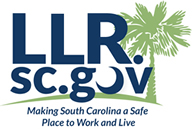What the Constitutional Amendments on the Ballot mean
The SC General Assembly has proposed two constitutional amendments. These are the questions that will be on your ballot when you vote November 8. We have explained what each amendment means and what your vote, whether yes or no, will mean.
Question 1: Must Section 36(A), Article III of the Constitution of this State, relating to the General Reserve Fund, be amended so as to provide that the General Reserve Fund of five percent of general fund revenue of the latest completed fiscal year must be increased each year by one-half of one percent of the general fund revenue of the latest completed fiscal year until it equals seven percent of such revenues? Explanation A ‘Yes’ vote will increase the amount of money state government must keep in the General Reserve Fund (its “rainy day” fund) from 5% of the previous year’s revenue to 7% of the previous year’s revenue. Yes. No.
Explanation: The state’s current Capital Reserve (rainy day) fund is 5% of the state’s general fund budget (about $10.3 billion in the 2022-2023 fiscal year). Its current balance is about $732 million because the General Assembly has set aside additional funds from time-to-time. If approved, the rainy-day fund will be increased by .5 percent each year until it reaches 7% of the state’s general fund budget in four years. This does not mean that the General Assembly sets aside 5% each year. It means that the fund must be 5% of the state’s budget, and when the state’s budget increases the General Assembly must set aside the necessary funds to maintain the current 5% rainy day fund. However, because the fund already exceeds 7%, additional appropriation won’t be needed right away. If you vote yes, you want the General Assembly to increase the required size of the rainy-day fund to 7%, phased in over four years.
Question 2: Must Section 36(B), Article III of the Constitution of this State be amended so as to provide that the Capital Reserve Fund of two percent of the general fund revenue of the latest completed fiscal year be increased to three percent of the general fund revenue of the latest completed fiscal year and to provide that the first use of the Capital Reserve Fund must be to offset midyear budget reductions? Explanation A ‘Yes’ vote will increase the amount of money state government must appropriate to the Capital Reserve Fund (the “reserve and capital improvements” fund) from 2% of the previous year’s revenue to 3% of the previous year’s revenue and require that the Capital Reserve Fund’s first priority is to offset midyear budget cuts at state agencies. Yes. No.
Explanation: The Capital Reserve Fund is different from the General Reserve (rainy day) fund. The rainy-day fund is used to balance the budget at the end of a fiscal year if revenues fall short of the budget. The Capital Reserve Fund is set aside each year and is used to replenish the rainy-day fund if it is used to balance the budget at the end of the year. If it is not needed, excess funds may be appropriated for capital improvements and one-time expenditures. This fund helps maintain government operations at current levels during a recession. The Capital Reserve Fund’s current balance is $209.2 million. If the referendum is approved, the Capital Reserve Fund set aside will be increased to 3% of the state’s budget and it will be used first to balance the budget and avoid budget cuts in the middle of a fiscal year.



